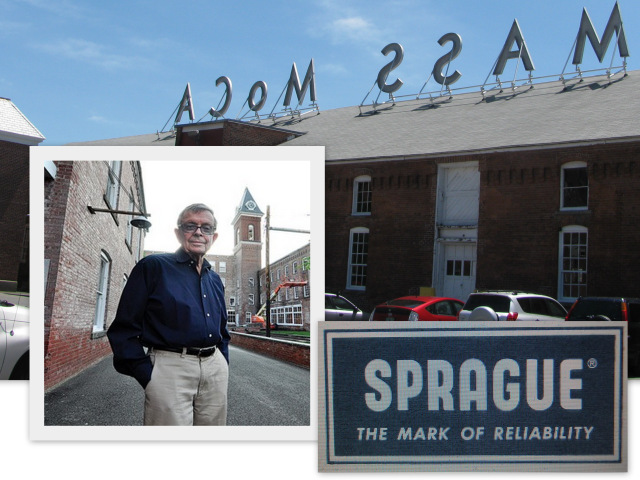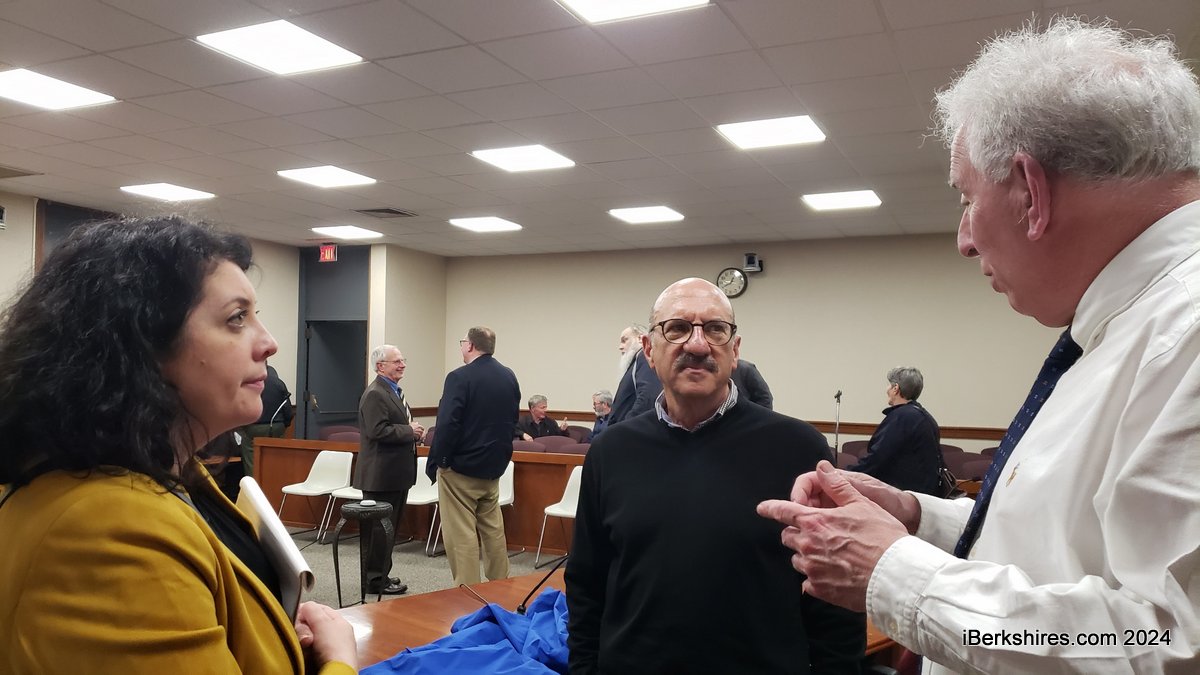Williamstown Museum Hosts Talk by Former Sprague CEO
 John L. Sprague will talk about the history of Sprague Electric and manufacturing in North Adams at the Williams Inn on Sunday. John L. Sprague will talk about the history of Sprague Electric and manufacturing in North Adams at the Williams Inn on Sunday. |
WILLIAMSTOWN, Mass. — The loss of manufacturing jobs caused a steep economic decline in North Adams more than two decades ago.
And the reverberations from the closing of Sprague Electric Co. are still being felt today.
John L. Sprague, who joined the family company as a research scientist in 1959 and retired as CEO in 1987, has written a book about the company titled "87 Marshall Street" — an address many in North Adams know well.
"I thought the SEC story, which I know personally, was an important story that needed to be told, and was a challenge to try and detail how such important entities as Arnold Print Works, SEC and Mass MoCA flowered in a small New England mill town," Sprague said in a recent email interview. "I also felt that the continuing population drop in the Berkshires as manufacturing has disappeared is a trend that must be reversed, and that '87 Marshall Street' if nothing else, could at least intensify the related dialogue."
Massachusetts Museum of Contemporary Art, which occupies the former Sprague site, is publishing "87 Marshall Street," which should be released within the next year.
John Sprague is not only using the written word to "explain why and how North Adams became a manufacturing power house, why it no longer is, and what are the ramifications of the change." He will give a talk based on "87 Marshall Street" on Sunday, June 8, at 2 p.m. in the Heritage Room of the Williams Inn.
Sprague's talk is the last in the Williamstown Historical Museum's 2014 Winter-Spring free lecture series.
The PowerPoint-illustrated presentation will include images of an 1841 woodcut of North Adams, an 1870 woodcut of Hunter Machine's North Adams headquarters, a look inside the former Arnold Print Works in 1900; a 1940 view inside Sprague and Sprague's parents in 1921.
.
"SEC was formed in 1926 by my parents in their Quincy home and grew based on a unique new electronic component, a capacitor invented by my father, Robert C. Sprague. In 1929, seeking more manufacturing space and labor, SEC moved to North Adams, where my grandfather, electric inventor Frank Sprague, grew up," said Sprague. "By 1943, SEC had occupied all of the Arnold Print Works factories at 87 Marshall St."
.
The Arnold Print Works was founded in 1829 by three brothers and by 1900 grew into one of the largest textile printing corporations in the world, employing 3,500 in North Adams out of a population of 22,000.
But by World War II, North Adams would suffer the loss of jobs when the print works went bankrupt and closed its facility. According to Sprague, the corporation failed because of competition from Southern factories and a strategic error by Albert C. Houghton, longtime leader of the company.
As the next occupant of 87 Marshall, Sprague became the world’s largest capacitor manufacturer, employing more than 4,000 in North Adams alone
.
"Hard times followed after a 1970 10-week labor strike in North Adams and several strategic errors," said Sprague. The company changed hands twice between 1976 and 1981, first purchased by General Cable and then Penn Central in 1981.
John Sprague was CEO when Penn Central in the mid-1980s directed the movement of the North Adams headquarters to Lexington.
"That move was supported by Sprague management, including me, because of the increasingly toxic relationship between management and the local community resulting from the 1970 strike and as part of a decentralization strategy where North Adams was no longer the center of the Sprague Electric universe," said Sprague. "I also admit that the company did a poor job in the 1980s in explaining to the local community why so many more jobs were leaving."
During that period, Sprague eliminated approximately 700 jobs in North Adams.
.
It was finally closed in 1991, but Sprague pointed out that many of former business units still operate successfully as parts of other companies.
Mass MoCA was opened in 1999.
"Although the museum has saved North Adams from economic oblivion, its presence hasn't generated nearly as great an economic revival as forecast, and the city continues to suffer the effects of a steadily decreasing population," said Sprague. "One proposal has been for the commercial part of Mass MoCA to become a sort of super customer-service center, but so far this approach has had very limited success."
Sprague, who lives in Williamstown with his wife, Jid, feels that because of Williams College, Williamstown is probably in better shape than most other Berkshire Communities.
"Still, as the population continues to drop there is increasing pressure on the decaying infrastructure, the school system and the taxes required to address these. While not in the mission of the college, I believe strongly that Williams needs to develop an active interest in local economic development," Sprague said. "At the age of 84, I love Williamstown as much as always and accept it for what it now is, warts and all."
Tags: historical,
 John L. Sprague will talk about the history of Sprague Electric and manufacturing in North Adams at the Williams Inn on Sunday.
John L. Sprague will talk about the history of Sprague Electric and manufacturing in North Adams at the Williams Inn on Sunday.















